The Anti-Masonic Party, also known as the Anti-Masonic Movement, was the first third party in the United States. It strongly opposed Freemasonry as a single-issue party and later aspired to become a major party by expanding its platform to take positions on other issues. After emerging as a political force in the late 1820s, most of the Anti-Masonic Party's members joined the Whig Party in the 1830s and the party disappeared after 1838.
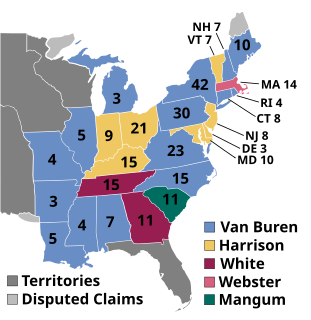
The United States presidential election of 1836 was the 13th quadrennial presidential election, held from November 3 to December 7, 1836. In the third consecutive election victory for the Democratic Party, incumbent Vice President Martin Van Buren defeated four candidates fielded by the nascent Whig Party.
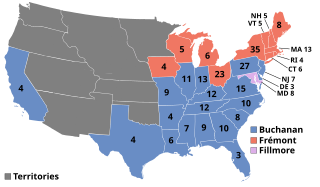
The United States presidential election of 1856 was the 18th quadrennial presidential election, held on Tuesday, November 4, 1856. In a three-way election, Democrat James Buchanan defeated Republican nominee John C. Frémont and American Party nominee Millard Fillmore.
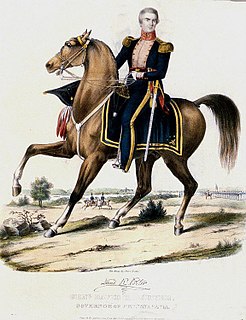
David Rittenhouse Porter was the ninth Governor of Pennsylvania and served from 1839 to 1845. He is the father of Horace Porter, the United States Ambassador to France from 1897 to 1905.
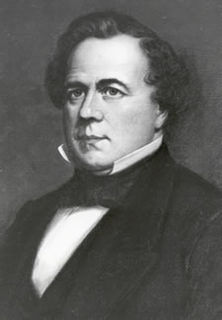
William Fisher Packer was an American politician from Pennsylvania who served as the 14th Governor of Pennsylvania from 1858 to 1861.
The Buckshot War was the outbreak of unrest in Harrisburg, Pennsylvania that transpired after the Pennsylvania gubernatorial and legislative elections in 1838 when both the Whig and Democratic parties claimed control over the Pennsylvania House of Representatives.

The Lieutenant Governor is a constitutional officer of the Commonwealth of Pennsylvania. The lieutenant governor is elected for a four-year term in the same year as the governor. Each party picks a candidate for lieutenant governor independently of the gubernatorial primary. The winners of the party primaries are then teamed together as a single ticket for the fall general election. Democrat John Fetterman is the incumbent lieutenant governor. The lieutenant governor presides in the Senate and is first in the line of succession to the governor; in the event the governor dies, resigns, or otherwise leaves office, the lieutenant governor becomes governor.

The 2010 Pennsylvania gubernatorial election was held on November 2, 2010, to elect the Governor and Lieutenant Governor of Pennsylvania, concurrently with elections to the United States Senate in Pennsylvania and other states and elections to the United States House of Representatives and various state and local elections.

The 1854 New York state election was held on November 7, 1854, to elect the Governor, the Lieutenant Governor, a Canal Commissioner and an Inspector of State Prisons, as well as all members of the New York State Assembly.

The Pennsylvania Gubernatorial election of 1998 was held on November 3, 1998. It was between incumbent Republican Tom Ridge, Democrat Ivan Itkin, Constitutionalist Peg Luksik and Libertarian Ken Krawchuk. Ridge, a popular moderate, won with 57% of the votes cast.

Thomas Westerman Wolf is an American politician and businessman who has served as the 47th governor of Pennsylvania since January 20, 2015. A Democrat, he was elected in the 2014 gubernatorial election and re-elected in 2018. Prior to his election as Governor, Wolf was the Secretary of the Pennsylvania Department of Revenue from April 2007 to November 2008 and an executive in his family-owned business.
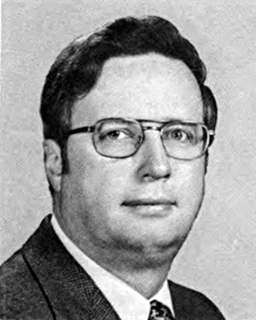
The Pennsylvania gubernatorial election of 1982 was held on November 2, 1982 between incumbent Republican Dick Thornburgh and Democratic U.S. Congressman Allen E. Ertel.
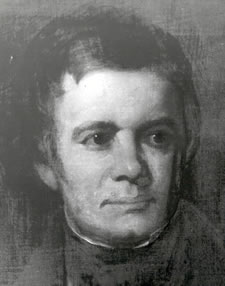
The Pennsylvania gubernatorial election of 1838 was between two candidates. Incumbent Governor Joseph Ritner ran as an Anti-Masonic candidate. Ritner's defeat by Democrat David R. Porter prompted the Buckshot War.

The Pennsylvania gubernatorial election of 1841 was between two candidates. Incumbent Governor David R. Porter ran for the Democratic Party, and defeated John Banks.
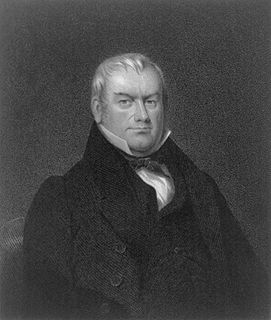
The Pennsylvania gubernatorial election of 1832 occurred on November 6, 1832. Incumbent Governor George Wolf, a Democrat, defeated Anti-Masonic candidate Joseph Ritner to win re-election.
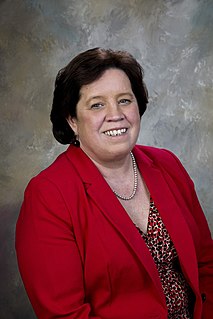
Mary Isenhour is an American political strategist, campaign manager, and government official. She was the Chief of Staff for Pennsylvania Governor Tom Wolf. Prior to the Wolf administration, Isenhour served executive director of the Pennsylvania Democratic Party, was state director of Hillary Clinton's 2008 presidential campaign, and assisted with the successful campaigns of U.S. Senator Bob Casey, Jr. and Pennsylvania Governor Ed Rendell. She now serves with the firm Rooney Novak Isenhour, LLC.

The Pennsylvania Treasurer election of 2016 was held on November 8, 2016. Democratic Incumbent Rob McCord was ineligible to run for re-election due to term limits. The Democratic and Republican primary election was held on April 26, 2016, with each candidate running unopposed in their respective primaries. Four candidates would appear on the ballot: Democrat Joe Torsella, Republican Otto Voit, Libertarian James Babb, and Green Party candidate Kristen Combs. Torsella defeated Voit by just over a 6% margin, with Babb and Combs both receiving under 3% of the vote.





















